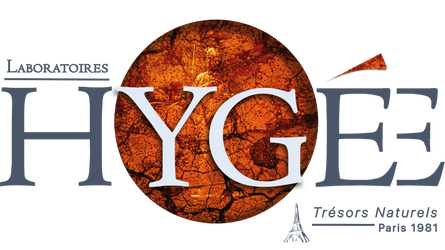Shop Now

Why Collagen Matters for Postpartum Recovery: Repair From Within, Regain Energy and Radiance
For new moms, postpartum recovery is a marathon: uterine involution, skin and connective tissue repair, joint and pelvic stability, plus fatigue and skin fluctuations from night feedings—all closely tied to collagen. This article explains, from a science-informed perspective, why sufficient, well-absorbed collagen can be a key pillar of recovery, and offers safe, practical daily supplementation tips.
Postpartum changes: where collagen helps most
- Connective tissues and skin elasticity
Pregnancy and childbirth stretch the abdominal skin and fascia. Collagen is the core structural protein of skin and the dermal matrix. Adequate intake supports elasticity and firmness, helping with stretch marks and laxity. - Pelvic and joint stability
Pregnancy hormones (like relaxin) loosen ligaments; they need time to recover after birth. Collagen forms the basis of ligaments, tendons, and cartilage, helping joint mobility and stability and easing discomfort from lifting the baby, standing, or sitting for long periods. - Muscle function and strength
Night care often tightens the neck, shoulders, and lower back. Collagen provides amino acids (glycine, proline, hydroxyproline) that serve as raw materials for muscle and connective tissue repair—especially effective alongside gentle core training. - Gum and oral health
Sleep loss and stress can affect oral tissues. Collagen also supports the periodontal ligament and gums. - Skin barrier and glow
Irregular routines and nutrient shifts during breastfeeding can lead to dullness and dryness. Collagen paired with vitamin C supports collagen synthesis and antioxidant defenses to restore radiance.

Why choose hydrolyzed collagen
- Better absorption
Hydrolysis breaks collagen into small peptides that are more bioavailable. HYGEE CH+ uses advanced hydrolysis, with the brand citing approximately 95% effective absorption—ideal for busy new moms. - More complete collagen types
Type I collagen supports skin, tendons, and bone; Type II supports joints and cartilage. HYGEE CH+ includes both Type I and II for broader postpartum coverage. - Synergy with vitamin C
Vitamin C is essential for collagen synthesis. Combined supplementation benefits tissue repair and skin appearance.

Safety and timing for postpartum use
- When to start
Recovery timelines differ for vaginal vs. C-section births. In general, once your clinician approves your diet, you can begin hydrolyzed collagen. If you’ve had a C-section or have specific medical considerations, consult your doctor or dietitian first. - Breastfeeding considerations
Most hydrolyzed collagen is a food-grade protein. Simple, clean formulas free from sugar, gluten, and common allergens are preferable. HYGEE CH+ highlights its natural, non-GMO, allergen-free, gluten-free profile. If you have known food allergies or kidney issues, seek medical advice first. - Suggested dosage
10 g per day is a practical, common dose. Take once or split into two servings. Consistency matters most; consider 8–12 weeks to observe changes in skin, joints, and overall energy. - Pairing with diet
Combine with adequate protein (fish, eggs, legumes), vitamin C–rich foods (citrus, berries, kiwifruit), and key minerals (magnesium, zinc) for added benefits.
Product choosing guide: Blue or Red?
- HYGEE CH+ Global Care (Blue can)
Focus: comprehensive support for joints, bones, muscles, and skin; includes vitamin C. Great if lifting, stroller pushing, and housework strain your shoulders, knees, or back. - HYGEE CH+ Beauty Active (Red can)
Focus: joint and bone support plus added magnesium and hyaluronic acid for fatigue resistance, hydration, and elasticity—ideal for moms prioritizing skin glow.
Note: The website currently notes the Red can is out of stock and is expected mid-November; the Blue can is a suitable interim option.

Working with movement and rehab
- Core restoration
Around 6–8 weeks postpartum (or as advised), start with breathing, pelvic floor activation, and gentle deep core work. Collagen provides raw materials for connective tissue adaptation. - Joint protection
Use pillows or backrests while holding or nursing. Gradually reintroduce bodyweight squats, glute bridges, and band rows. Avoid sudden high-impact exercise. - Sleep and stress
Glycine intake plus solid sleep hygiene can help recovery. Share caregiving shifts and use short naps to boost daytime function.
FAQs
- Will it cause weight gain?
Hydrolyzed collagen is sugar-free and fat-free with low calories. Avoid excess sweet drinks and snacks to manage extra calories. - Do I need hyaluronic acid or vitamin C too?
They’re synergistic. The Red can includes hyaluronic acid and magnesium; both formulas include vitamin C to support endogenous collagen synthesis. - How long until I notice benefits?
Skin hydration and glow: ~4–8 weeks; joint comfort: ~8–12 weeks, with individual variation. Consistency is key.
Postpartum recovery takes time and patience. A high-quality, easy-to-absorb hydrolyzed collagen, combined with balanced nutrition, gentle movement, and healthy routines, can support comprehensive recovery of joints, connective tissues, and skin. With Types I and II collagen, vitamin C, and a natural formula, HYGEE CH+ offers a simple, daily 10 g solution for new moms.

